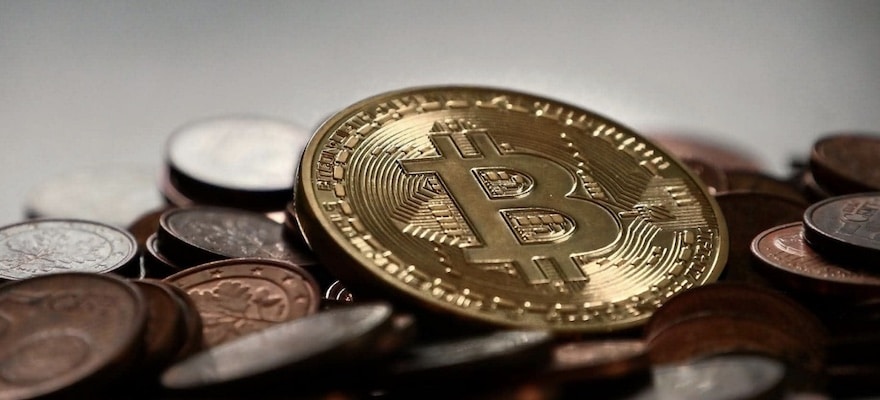There has been speculation around the world about Central Bank Digital Currencies (CBDCs), and actual moves, in some countries, to begin experimenting with and implementing such technology.
This represents a radical change, and comes at a time when bitcoin, Cryptocurrencies and Blockchain technology are starting to be taken seriously as genuinely disruptive forces, and perhaps even as threats to established, centralized powers.
You could, at first glance, assume that bitcoin and CBDCs are the same thing, digital payment systems or stores of value, but in fact, they are directly oppositional.
In Favour of CBDCs
Initially, CBDCs can be sold as a convenient, clean, high-tech innovation. Not needing to carry cash and being able to perform transactions digitally, carries positives and sounds like a natural progression in a digital age. Having said that, phasing cash out entirely would make this a more profound social shift.
Another argument in favour is that CBDCs allow governments to react quickly to changing circumstances and future emergencies. With a CBDC in place, new policies can be implemented without unwanted hesitation. There’s a case to be made that we’d all benefit from governments intervening less and hesitating more, but that’s another debate.
It will probably be suggested that CBDCs are environmentally friendly and the word sustainable will no doubt be liberally bandied around. Whether or not this is true, or even relevant, doesn't really matter, but it might be part of the marketing.
If CBDCs replaced cash, then that would certainly eliminate the problem of counterfeiting. CBDCs would also have an impact on banking fraud, corruption in the financial sector, and in stopping streams of illicit funding to criminal organisations, forcing ne’er-do-wells to up their game, sorry, I mean tackling criminality through high tech innovation.
Realistically though, claims that CBDCs will help to root out corruption and illicit behaviour require you to believe that the authorities issuing the CBDCs are not themselves capable of corruption and illicit behaviour, and will remain pure as the driven snow even as CBDCs enable different kinds of ethically dubious activity on a society-wide scale. And, that’s a bit of a stretch.
Why CBDCs are Dangerous
In a word: overreach. And, in several more words: an authoritarian control-state, in which some of the fundamentals that enable a liberal, free existence, such as privacy, control over one’s own property, and financial independence, are things of the past.
CBDCs are a trick. They take the perceived technological allure of bitcoin, crypto and blockchain technology, and strip it of every cypherpunk core principle that made it exciting in the first place.
Here is just one prospect, which is entirely feasible, technically: CBDCs become programmable money. The government then has the ability to restrict absolutely what you can and cannot buy, or to put geographical limits on your spending, or perhaps to order that you must spend your money before a certain time, or it will become invalid.
And, bear in mind you have no idea who the government will be in the future. Imagine the politician you have least in common with, and whose ethos you most dislike. Would you allow them to have this kind of power?
How about if CBDCs are tied in with digital IDs, linked (considering current events) to your medical records? What else might they become linked to? What if any social misdemeanour (and who knows what future governments might deem to be a misdemeanour) is discouraged through adjustments to your financial liberty?
If bitcoin represents economic freedom, promising (realistically or not) to cut out the central-bank, money-printer middlemen and deliver in their place decentralized, sound money, secured in code and operational globally and without borders, then CBDCs are, well… CBDCs are the central-bank, money-printer middlemen, whose response to attempts at decentralization is to entrench centralization more deeply, with greater control, and further capacity for infringing on personal liberties.
This would be bad enough in normal circumstances, but it comes at a time when almost the entire world has been experiencing, through pandemic control measures, top-down restrictions on society the likes of which most people have never previously experienced.
Defenders of these restrictions might assert that they are temporary, but is it beyond the realms of the imagination (or beyond historical literacy) to think that governments tend not to easily give back powers they have temporarily assumed? Or that CBDCs are one way of hard-coding control (or at least the potential for control) into the system?
A Fork in the Road
There is a tendency at the moment to label anyone who opposes increased state power, and restrictions on our freedoms, as a conspiracy theorist, but I’m not entirely sure what that label means. CBDCs, and the heavily illiberal government policies of the past couple of years, are evidently real and are neither a conspiracy nor a theory.
And, as for government proposals to radically alter a core mechanism of society, our money, in ways that would hand over more power to the authorities; if that’s not worthy of open discussion, including noting easily recognizable negative consequences, then I don’t know what is.
Perhaps the world will soon return to prior concepts of normality (whatever that means), money and all. But, on the other hand, we might be at a fork in the road. Down one path is a culture that emphasizes compliance with the authorities, offering supposed security through monitoring, checks and restrictions, and CBDCs. And, down the other fork, lies decentralization, and a world in which bitcoin and other cryptocurrencies promise, potentially, not just reduced state control, but a complete decoupling of state and money.






















